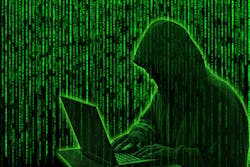Plastic card (smoking gun)
Criminals today use an array of payment cards to purchase, transfer or conceal billions of dollars of illicit funds from law enforcement.
Many times, criminals illegally clone valid payment cards on to nondescript pieces of plastic like hotel room keys and subway cards, making detection and interrogation nearly impossible. Since virtually any plastic card with a magnetic stripe can be re-purposed as a credit, debit or prepaid payment card, being able to determine the identity of the card is critical to law enforcement investigations. Investigators have been unable to fully investigate the type, origin and value of these payment cards. Also, reporting and forensics related to these confiscated payment cards is often a manual, time consuming and error prone process.
In hundreds of investigations in 2015, criminal organizations who formerly conducted bulk narcotic transactions became involved with financial identity theft and fraud. These operations found that the risk of capture was less likely and the punishment, if caught, was far less severe. They also learned how quickly they could turn the stolen financial information of a few people onto re-programmed magnetic stripes to purchase tens of thousands of dollars in gift cards and merchandise to launder the electronic currency.
In many of these investigations, agents used something called an Electronic Recovery and Access to Data (ERAD) system to swipe the re-purposed cards found in the criminal’s possession to gather real-time information from the magnetic strip. ERAD is a credit, debit, prepaid, and gift card cloud-based program that provides real-time analytics, recording, and balance information to law enforcement. This information includes the true victim’s name (the individual from whom the financial information was taken), the financial institution the victim was associated with, and the account number and credit carrier tied to the victim and bank. Then with a click of a button, each card and any additional notes added by an investigator are recorded onto a spreadsheet that may be downloaded for evidentiary use.
Often times, 50 to 100 or more cards are found in the possession of a single criminal tied to these organizations. The “swipe and click” cataloging of the cards makes for a simplified, expedited and accurate method of recording the evidence.
Financial identity theft and fraud investigations are common occurrences.
In January of 2016, US Postal Inspectors in Phoenix, Ariz. detected a suspicious parcel and gained cause to open and inspect the contents. Inside, they found a magazine whose pages contained numerous credit cards taped to them. Over 200 cloned credit cards were repurposed and professionally embossed with information matching the mag stripe information. If the investigators had only used a mag stripe reader they likely would not have learned the full details. However, with something more sophisticated inspectors were able to immediately determine specific information. ERAD information showed contradicting financial institution identification to what was displayed on the newly embossed face of the card.
The annual value of illegal and illicit activities occurring in the U.S. is estimated to be more than $120 billion. And while most of that money is transported in bulk-cash shipments, more and more is being transferred with prepaid cash cards and other electronic methods. Unlike cash, the money associated with prepaid cash cards can be moved by criminals using a mobile phone or Internet application in minutes, even after the criminals have been arrested and the prepaid cards confiscated. With billions of dollars being illegally loaded on prepaid cash cards, law enforcement needs the tools to obtain a balance, freeze or confiscate those funds.
In some cases officers have conducted balance inquiries on prepaid debit cards found in the possession of suspected narcotic and currency smugglers. Once a criminal nexus is determined and a balance is defined, investigators can freeze and/or seize the currency retained on the card. In the seizure process, the funds are transferred directly to the law enforcement agencies’ specified forfeiture holding account to await the adjudication process.
This same method of illicit currency freezing and seizing has been used to combat the laundering of currency used in the fraud associated with the re-purposed magnetic stripes discussed before. As many criminal organizations launder the stolen identity information by purchasing credit company and retailer gift cards, law enforcement can now freeze and seize those cards, as well, thereby denying the attempted concealment of the electronic cash by these major criminals.
A major breakthrough in money laundering investigations occurred in Madison County, Florida this March. Deputies stopped two men traveling in a rental car and discovered over $59,000 of illicit currency wrapped in dryer sheets in the vehicle and 38 debit cards tied to bank accounts. Through their investigation, they gained probable cause to believe these accounts were tied to money laundering and acquired a seizure warrant.
In this case, again, deputies used ERAD to identify the accounts and electronically freeze the funds so no other coconspirators could move the currency. They then executed the seizure warrant by transferring an additional total of $129,000 in illicit money to their specified forfeiture holding account.
Most of today’s monetary transactions happen on plastic. What can that plastic tell us? How can we unlock the information to solve more crimes? This will undoubtedly continue to be an essential method for investigators going forward.
